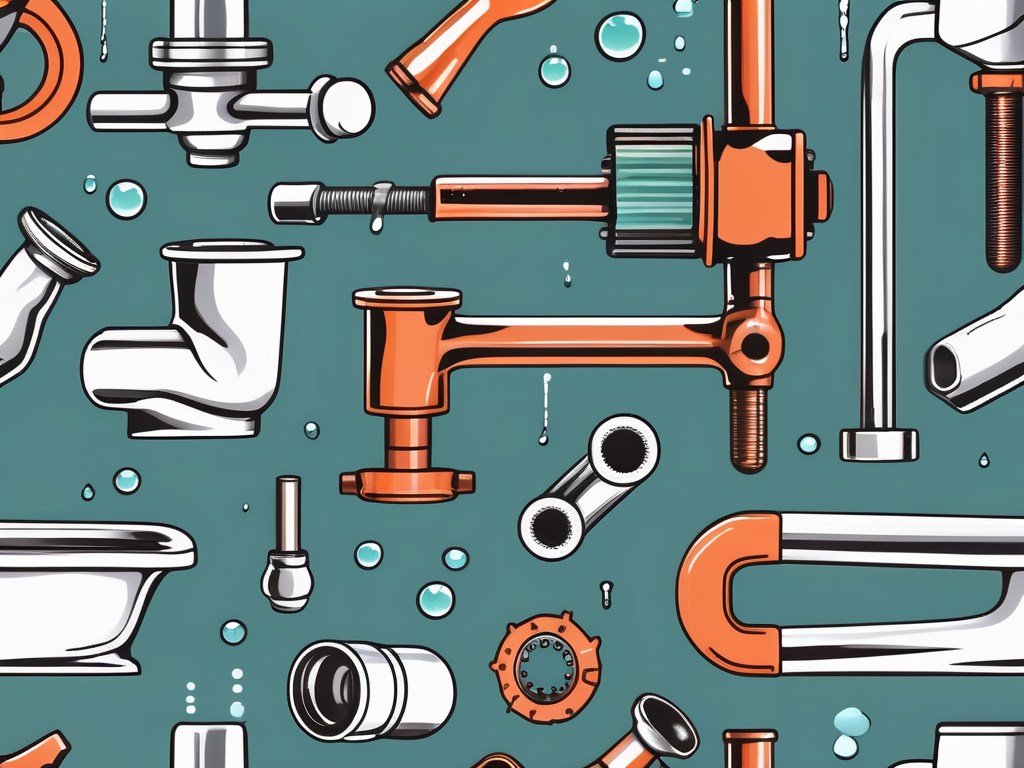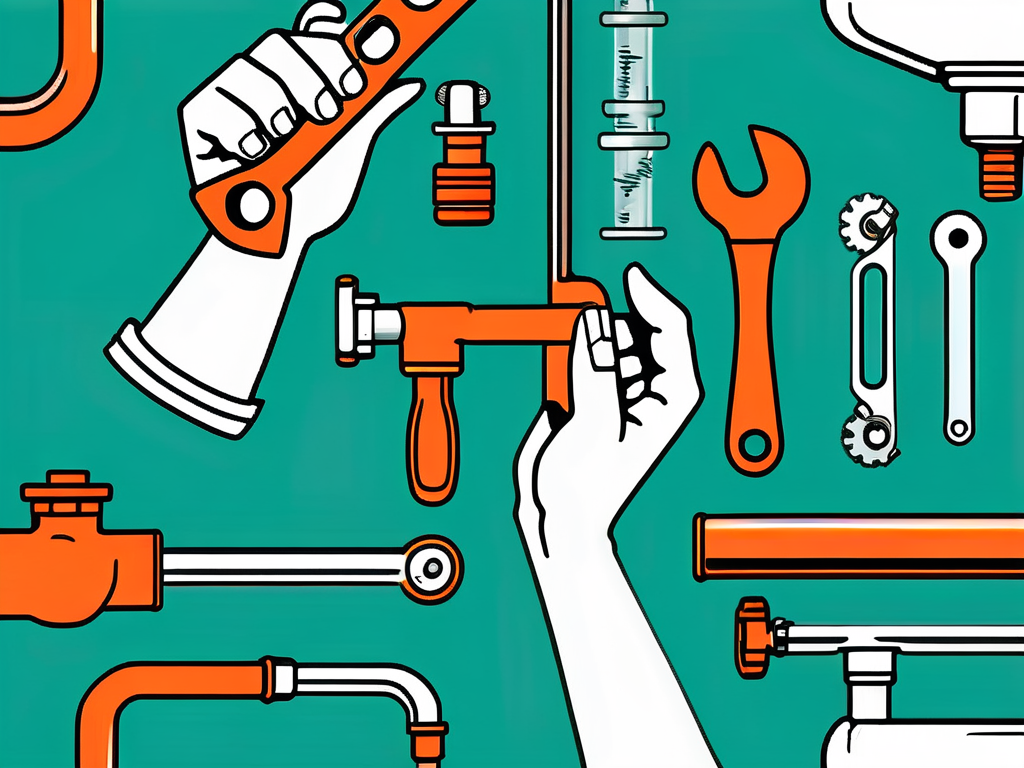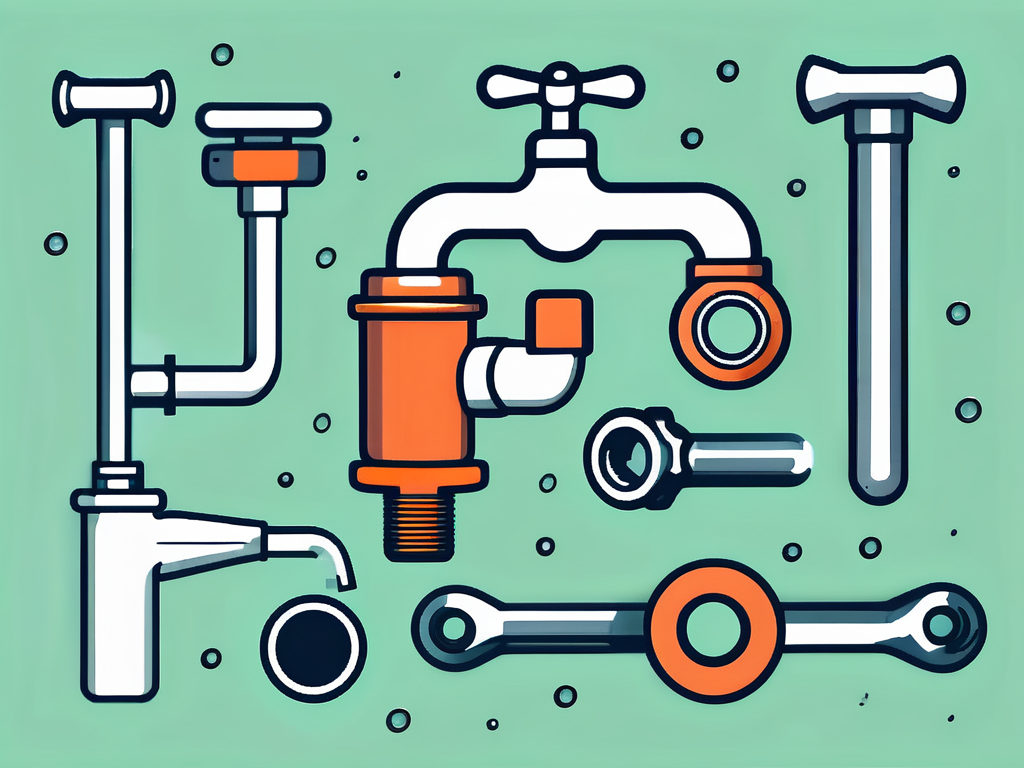
Drain and Go: The Ultimate Guide to Quick and Efficient Plumbing Solutions
Drain and Go: The Ultimate Guide to Quick and Efficient Plumbing Solutions
Plumbing systems are essential parts of our daily lives, often taken for granted until issues arise. Understanding how plumbing works, how to troubleshoot common problems, and knowing when to seek professional help are key aspects of maintaining a healthy home. This guide will equip you with the knowledge you need to manage your plumbing effectively and efficiently.
Understanding the Basics of Plumbing
Before diving into specific plumbing issues and solutions, it's important to grasp the fundamentals of plumbing. It involves the design and construction of systems for water supply, waste removal, and heating in residential and commercial buildings. Understanding these basics will empower homeowners to address minor issues before they escalate.
The Importance of Efficient Plumbing
Efficient plumbing is crucial for maintaining a comfortable and functional living environment. Poorly functioning plumbing can lead to an array of problems, including water waste, increased bills, and significant damage to your property. An efficient system also contributes to better hygiene and a healthier lifestyle.
Moreover, addressing plumbing issues quickly not only prevents costly repairs but can also extend the lifespan of your plumbing system. The sooner you identify and rectify a problem, the less likely it is to develop into a major expense. Therefore, having a basic understanding of plumbing efficiency is beneficial for every homeowner. Regular maintenance, such as checking for leaks and ensuring that drains are clear, can save both time and money in the long run, allowing you to enjoy a more worry-free home environment.
Key Components of a Plumbing System
A plumbing system typically consists of several key components: pipes, fixtures, fittings, and drainage systems. Each of these elements plays a vital role in the overall function of your plumbing. Pipes transport water to and from various parts of your home, while fixtures are the outlets for that water.
Additionally, fittings connect different sections of piping and help direct the flow of water or waste. Drainage systems then remove waste, ensuring your household remains clean. Understanding how these elements work together can help you diagnose issues more effectively. For instance, knowing that a clogged drain may be a result of buildup in the pipes can guide you to take preventive measures, such as using strainers to catch debris or employing natural drain cleaners to maintain flow. Furthermore, the materials used in your plumbing—such as copper, PVC, or PEX—each have their own advantages and disadvantages, influencing the durability and efficiency of your system. Familiarizing yourself with these materials can also aid in making informed decisions when renovations or repairs are necessary.
Quick Fixes for Common Plumbing Issues
Even with a solid grasp of plumbing basics, you may still encounter common problems. Fortunately, many plumbing issues have quick and easy fixes that can save you the trouble of calling a professional.
Dealing with Leaky Faucets
Leaky faucets are one of the most common plumbing nuisances. Not only do they waste water, but they can also increase your utility bills. The majority of leaks occur due to worn-out washers or O-rings. To fix a leaky faucet, first, turn off the water supply and plug the drain to prevent any small parts from falling in.
Once you've disassembled the faucet, inspect the washer or O-ring for wear. Replace any damaged parts with new ones and reassemble the faucet. After turning the water supply back on, check for leaks before considering the job complete. Regular maintenance can prevent future leaks; consider cleaning the faucet aerator periodically to ensure a steady flow of water and to avoid sediment buildup that can lead to pressure issues.
Unclogging Drains Effectively
Clogged drains can bring your daily routine to a standstill. One of the simplest methods for unclogging is to use a plunger. Ensure you cover the overflow drain when using a plunger to create a seal. Push down firmly and then pull up quickly to dislodge the clog.
If this method fails, consider using a mixture of baking soda and vinegar. Pour half a cup of each into the drain and let it sit for 30 minutes, then follow with hot water. This natural remedy is effective for minor clogs and is eco-friendly. For persistent clogs, a plumber's snake may be required for a deeper solution. Additionally, you might want to prevent future clogs by regularly flushing your drains with hot water and avoiding the disposal of grease, coffee grounds, and other debris down the sink, which can accumulate over time and create blockages.
Advanced Plumbing Solutions
Once you feel confident in handling basic plumbing issues, you may want to tackle more advanced tasks. These typically require a higher level of skill and caution but can provide significant improvements to your plumbing system.
Replacing Pipes and Fittings
Older plumbing systems may have pipes that are corroded or damaged. Replacing these pipes can significantly improve water quality and system efficiency. To replace a pipe, first, turn off the water supply and discharge any remaining water from the pipes.
Next, carefully remove the old pipes and fittings, taking note of how they were connected. Substitute in the new pipe, using appropriate fittings and sealants to secure the connections. It's best to consult local codes and standards to ensure your repair meets safety regulations. Additionally, consider the material of the new pipes; options such as PVC, copper, or PEX each have their unique benefits and drawbacks. For instance, PEX is flexible and resistant to scale and chlorine, making it a popular choice for many homeowners.
Installing New Plumbing Appliances
Installing new plumbing appliances, such as a washing machine or dishwasher, can enhance your home’s functionality. Typically, installation involves connecting water supply lines and drainage pipes. Always follow manufacturer's instructions and local building codes to avoid future issues.
If you’re not comfortable with the installation process, hiring a professional can ensure it is done correctly. Proper installation prevents potential leaks and ensures your new appliance operates efficiently. Furthermore, consider the energy and water efficiency ratings of the appliances you choose; modern models can significantly reduce utility bills and environmental impact. It’s also wise to check for any necessary permits before installation, as some municipalities require them for major plumbing work. This proactive approach not only keeps you compliant with local regulations but also protects your investment in new appliances.
Preventive Measures for Plumbing Maintenance
Preventive measures are crucial in avoiding plumbing issues before they occur. Regular maintenance and inspection can save homeowners both time and money in the long run. By staying proactive, you can ensure that your plumbing system operates smoothly, which not only enhances your home’s efficiency but also contributes to its overall value.
Regular Inspection and Cleaning
Regularly inspecting and cleaning your plumbing system can identify problems before they escalate. Check for leaks, corrosion, and signs of wear on hoses and fixtures. Additionally, cleaning your drains can prevent buildup that leads to clogs. It's also wise to inspect the water heater periodically; sediment buildup can reduce efficiency and lead to costly repairs if not addressed.
Consider creating a maintenance checklist to guide your inspections. Tasks might include checking water pressure, inspecting faucets, and clearing debris from drainage areas. A proactive approach to maintenance is always more effective than reactive fixes. Furthermore, scheduling professional inspections annually can provide a thorough assessment of your plumbing system, catching issues that may not be visible to the untrained eye. This can include checking the integrity of your sewer lines, which can save you from unexpected emergencies.
Avoiding Common Plumbing Mistakes
A few common mistakes can exacerbate plumbing issues. For instance, using chemical drain cleaners can cause more harm than good. These chemicals can corrode pipes and create breakage, ultimately costing more in repairs. Instead, consider natural alternatives like baking soda and vinegar, which can effectively break down minor clogs without damaging your plumbing.
Similarly, flushing items that should never go down a toilet is a frequent error. Items such as wipes, paper towels, and feminine products can create major blockages. Educating your household on plumbing do's and don'ts can minimize these mistakes and protect your system. Additionally, be mindful of what goes down your kitchen sink; grease and food scraps can lead to significant buildup in your pipes. Implementing a composting system for food waste can help reduce the strain on your plumbing while also benefiting your garden. Regularly reminding family members of these practices can foster a culture of care and responsibility towards your home’s plumbing system.
Hiring Professional Plumbing Services
While many plumbing issues can be handled independently, there are times when the expertise of a professional is necessary. Knowing when to call for help can save you from costly damages and extensive repairs.

When to Call a Plumber
Situations that often warrant a plumber include extensive leaks, sewage backflow, or multiple clogged drains. If the issue escalates beyond basic troubleshooting, it’s advisable to contact a professional. Advanced plumbing problems can sometimes signal deeper issues within your system.
Additionally, if you’ve attempted to fix a problem with no success, it’s wise to reach out to a plumber. They have the tools, parts, and expertise necessary to resolve complex problems effectively. For instance, persistent low water pressure can indicate a hidden leak or a problem with your water supply lines, which requires specialized knowledge to diagnose and repair. Ignoring such signs can lead to more significant issues down the line, including water damage or mold growth.
Choosing the Right Plumbing Service
When selecting a plumbing service, consider credentials, experience, and customer reviews. Ensure that the plumber or service has the necessary licenses and insurance. Asking for quotes in advance can also help you compare prices and services effectively.
Furthermore, local plumbing services are often better positioned to respond quickly to emergencies. Don’t hesitate to ask for recommendations or read reviews online to find a reputable professional service. Your plumbing needs deserve competent and reliable attention. It’s also beneficial to inquire about their warranty policies, as many reputable plumbers offer guarantees on their work, providing you with peace of mind. Additionally, consider whether the plumbing service provides preventative maintenance options, which can help you avoid future plumbing issues and extend the life of your plumbing system. Regular check-ups can identify potential problems before they escalate, saving you time and money in the long run.
Conclusion: Towards a Hassle-Free Plumbing Experience
Managing your plumbing effectively involves understanding the system, addressing issues promptly, and knowing when to seek assistance. By following this guide, you are better equipped to handle your plumbing needs efficiently.

Remember, preventative maintenance is the key to avoiding major headaches down the line. Equip yourself with knowledge, be proactive, and enjoy a hassle-free plumbing experience. Whether it’s a minor leak or a major installation, understanding your plumbing system will always serve you well.
